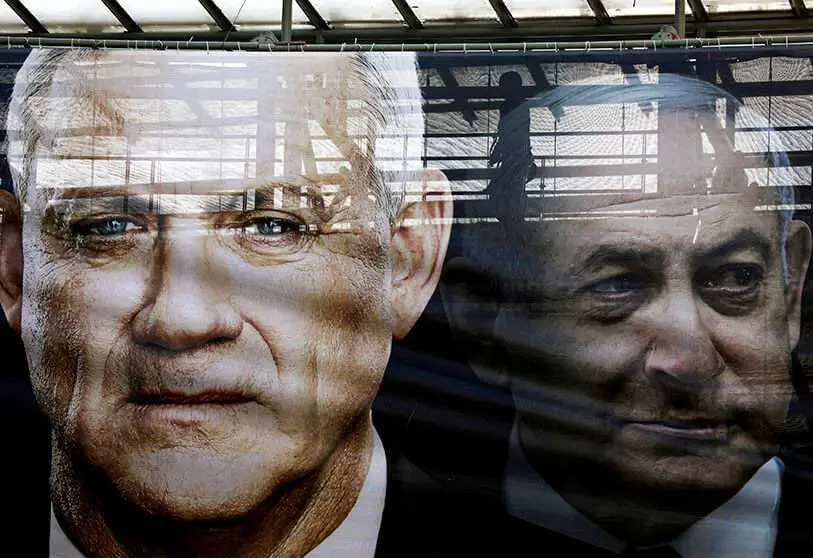Israel to the center

The Israeli Ministries of Health, Economy and Foreign Affairs organized a briefing last week for the international press and different specialists to explain some keys about the country's situation in the face of the COVID-19 crisis and about the internal and global perspectives in the coming months. 18 of them, under the direction of Benjamin Netanyahu and the following, with the centrist Benny Gantz at the head of the emergency government coalition that has been signed by the two political groups of the centre and the right. The meeting projected some less pessimistic and more hopeful expectations about the management of the pandemic and the trends that can be expected in the future. Just over 200 deaths and 15,000 affected are the figures that the two-headed government faces so far, and it has already begun the process of de-escalation and renormalization, as well as the opening of businesses and shops.
The head of the Strategic Planning Department of the Ministry of Foreign Affairs, Oren Anolik, was responsible for presenting the summary of the analyses that the Israeli Foreign Services have prepared. The first of them is about the bringing and changing of the world order. In this sense, the Israelis do not consider that a modification in the relations of power and international influence is taking place. They stress that, so far, the international crisis of the coronavirus has intensified competition between powers and, therefore, has not brought positions closer together for a review of patterns of behaviour or greater multilateral cooperation. However, according to Anolik, one thing is the very short term in which we find ourselves and another is the short and medium term after that, in which "ways of cooperation can be found to replace competition". The health and economic crisis may activate common interests and new visions among international actors.
An opportunity that should influence the new government to establish positions for the negotiation of a definitive and viable plan with the Palestinians. In fact, as the press has reported in recent days, the pandemic has led to the creation of medical cooperation initiatives between Tel Aviv and the Abbas Government, and even with the Gaza Strip. Similarly, the commemorations and funerals for the victims of COVID-19 have unusually brought the two communities closer together. However, Anolik omitted references to the bilateral relationship with the Palestinian communities, yet referred to the regional threat posed to Israel by the Iranian regime, and the possibility that the oil crisis would upset different communities and governments, which could have unpredictable consequences in the near future.
Regarding globalization, the Foreign Ministry spokesperson insisted on the double temporality: that of this phase in which the rhythms of global relations have slowed down and that of the short and medium term, where, in his opinion, they could multiply. The opportunity for the strengthening of globalization, in addition to the favorable political environment, is due to the important consequences that the pandemic may have in sectors such as technology, big data and robotics; key sectors in this period and the subsequent adaptation to normality. Finally, Anolik assessed the dispute between democratic systems and authoritarian regimes to observe optimistically the possibilities that democracies will emerge strengthened in the medium term, although there is now a perception of certain authoritarian upturns in different countries.
The moderate and cautiously hopeful vision of the Israeli administration coincides with the first days of a new and more focused government. Shlomo Ben Ami said that, for the conditions for peace to exist, two things are needed: a favourable environment and strong leadership. The environment can this time come hand in hand with recovery from the tremendous expansion of the COVID-19 crisis. Leadership, from the two heads of Jewish power. One that remains, although dwarfed by political and judicial circumstances, that of Prime Minister Netanyahu. And another that endures it for 18 months and then succeeds it in power: that of the centrist and current Defense Minister Benny Gantz.

